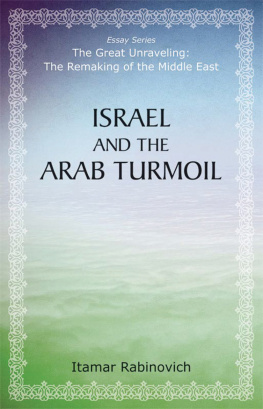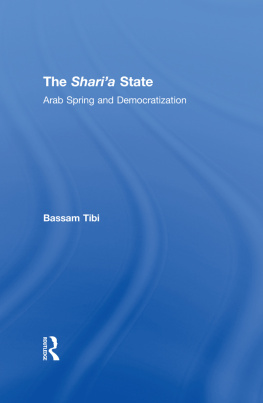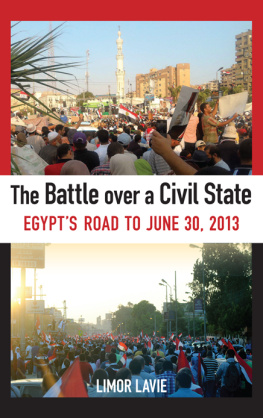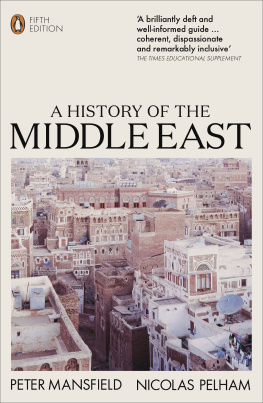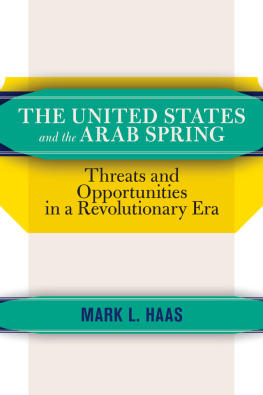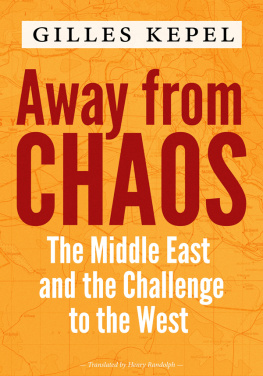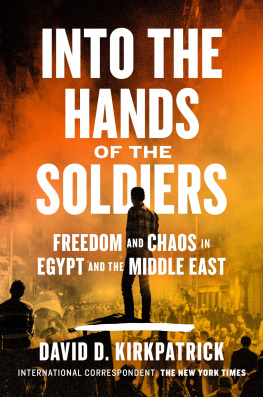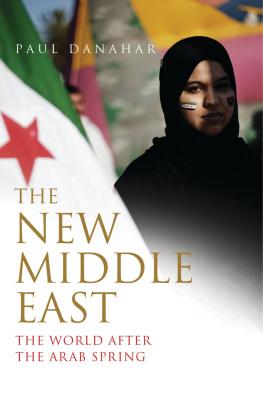Broken Spring
An American-Israeli reporters close-up view of how Egyptians lost their struggle for freedom
Mark Lavie
Copyright Mark Lavie
Jerusalem 2014/5774
All rights reserved. No part of this publication may be translated, reproduced, stored in a retrieval system or transmitted, in any form or by any means, electronic, mechanical, photocopying, recording or otherwise, without express written permission from the publishers.
Cover Design: Leah Ben Avraham, Noonim Graphics
ISBN: 978-965-229-668-9
1 3 5 7 9 8 6 4 2
Gefen Publishing House Ltd.
6 Hatzvi Street
Jerusalem 94386, Israel
972-2-538-0247
Gefen Books
11 Edison Place
Springfield, NJ 07081
516-593-1234
www.gefenpublishing.com
| Printed in Israel | Send for our free catalog |
For my wife, Ruth, whose support, strength and love made this whole adventure possible.
Preface
After four decades of reporting in the Mideast, I thought I knew the region well. Then Arab Spring erupted as I was working in Egypt. It showed that common assumptions, like these, were wrong:
- The Muslim Brotherhood is an extreme, violent group bent on enforcing strict Islamic law in Egypt and exporting it to neighboring countries.
- Young, Internet-savvy, secular, liberal, pro-democracy Egyptians are Western-oriented and would develop positive relations with the U.S.
- Resolving the Israeli-Palestinian conflict is the key to solving the regions problems.
- When Egypts military took power, it crushed the newborn democracy.
The trip from such assumptions to reality covers about four years, focusing on the tumultuous years of two popular revolutions and two military coups. I was living in Cairo, walking through its poor, crowded but friendly neighborhoods, shopping alongside my neighbors learning that Egyptians take their Islam seriously but moderately, much as they live their lives.
They experienced a complete cycle of hated leadership, popular revolution and military coup. Twice.
Egypts liberal, secular revolutionaries, following the precedent of Tunisia weeks earlier in January 2011, toppled President Hosni Mubaraks heavy-handed twenty-nine-year rule, but they failed to transform themselves into a cohesive political movement to assume leadership of the country. The result was a takeover by Islamist fundamentalists through elections with a thin veneer of democracy.
Some of the same liberal activists pulled off a second revolution, leading to the ousting of President Mohammed Morsi of the Muslim Brotherhood after just one year in office.
By then Egyptians were tired of the constant unrest, which decimated their economy, frightening away tourists and investors. Even the grassroots movement that spurred the popular uprising against Morsi backed the second military takeover after fighting the first one. Attempts to demonstrate against the militarys measures to impose order after the second coup attracted only small crowds a few thousand, compared to the millions who marched before.
Similar patterns have unfolded across the Middle East. In nations where there were popular revolutions, like Tunisia, Libya and Syria, no Western-oriented liberal democracies have emerged, though Tunisia still has possibilities. In other countries, like Saudi Arabia, Jordan and Bahrain, powerful autocratic regimes offered relatively minor reforms to their people to stave off popular uprisings, while imposing some time-honored means of repression to make sure.
Broken Spring takes you into Egypt at ground level. In essays written over a four-year period, you meet Egyptians, follow their political processes, cringe over their economic deprivation, smile with their innate friendliness, taste the ferment in the region, assess Israels role and in the end, begin to grasp why everything went wrong.
The author is a veteran foreign correspondent based in Tel Aviv and Jerusalem since 1972. After covering news events in Egypt starting in 1973, he began reporting from Egypt for longer periods in 2009, moving there in August 2011 for a two-year assignment. As a dual American-Israeli citizen and an Orthodox Jew, he brings that perspective to Arab-Israeli relations through the prism of Egypt, alongside the main theme of Egypt in turmoil.
Mark Lavie
Rehovot, Israel
February 2014
Acknowledgments
I am forever grateful to my many friends in Cairo who helped me understand their country and their people, to colleagues who explained the intricacies and patiently fielded my many questions, and to officials who spoke to me while trusting that I would keep their names out of print.
I owe a great debt of thanks to Gefen Publishing House of Jerusalem, to publisher Ilan Greenfield for believing in my message and embarking on a solo e-book project for the first time, and to editor Ita Olesker for polishing my sometimes over-simple prose.
And to my long-suffering wife, children and grandchildren, who watched nervously from afar as events turned violent and then calmed, only to turn violent again, who forgave me for dropping in from the airport after all the holiday preparations were already done, even for missing the birth of a granddaughter I pledge my everlasting love and devotion and promise Ill stay home now.
Introduction, June 2011
On January 25, 2011, millions of Egyptians began demonstrating against President Hosni Mubarak, and just eighteen days later, his three-decade iron-fisted rule was over. It seemed almost too easy. As it turned out, it was. Egypt descended into a cycle of constant revolt, constant demonstrations, constant labor unrest, economic chaos. The signs were apparent at the outset.

Drawing the revolution

Revolution on a wall
It means freedom, explained the young artist, helping me understand the word that kept appearing in drawings she and her art school classmates were skillfully painting on a wall in a leafy Cairo neighborhood.
Anger is the dominant theme in the row of eight-foot-high wall pictures. Clenched fists. Shouting faces.
The one next to my artist translators creation is different, simpler. Its two dominant images are a pair of arms, the rope that was shackling them together cut in two and next to them, two pieces of a puzzle, one with a 2 and the other with a 5. They could fit together, but they stand apart
Egypts popular revolution began on January 25, so forever it will be known as the January 25th Revolution, though the conclusion came eighteen days later, when President Hosni Mubarak stepped down. Egypt likes to name things after dates in its recent history. The May 15th Bridge runs along and over July 26th Street. Egypts military overthrew King Farouk on July 26, 1952, and the British mandate in the Middle East ended on May 15, 1948.
The Egypt Mubarak left behind when he quit in disgrace on February 11, 2012, is an overwhelming mess. Hes not to blame for all of it, but his twenty-nine-year dictatorship of graft and nepotism did little to overcome the enormous problems this country faces. It arguably made them worse.
Housing conditions make a good starting point. On the outskirts of Cairo are gated communities with mansions that would do Hollywood proud. In the city are slums where families live in hovels around a courtyard with a single toilet. Imagine waiting in line for the bathroom every morning with seventy other people. That is their reality.


